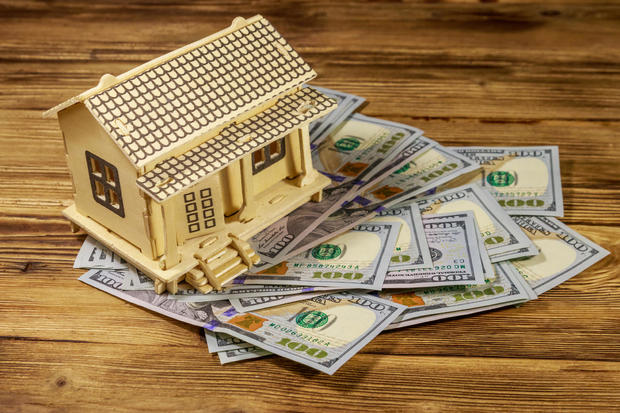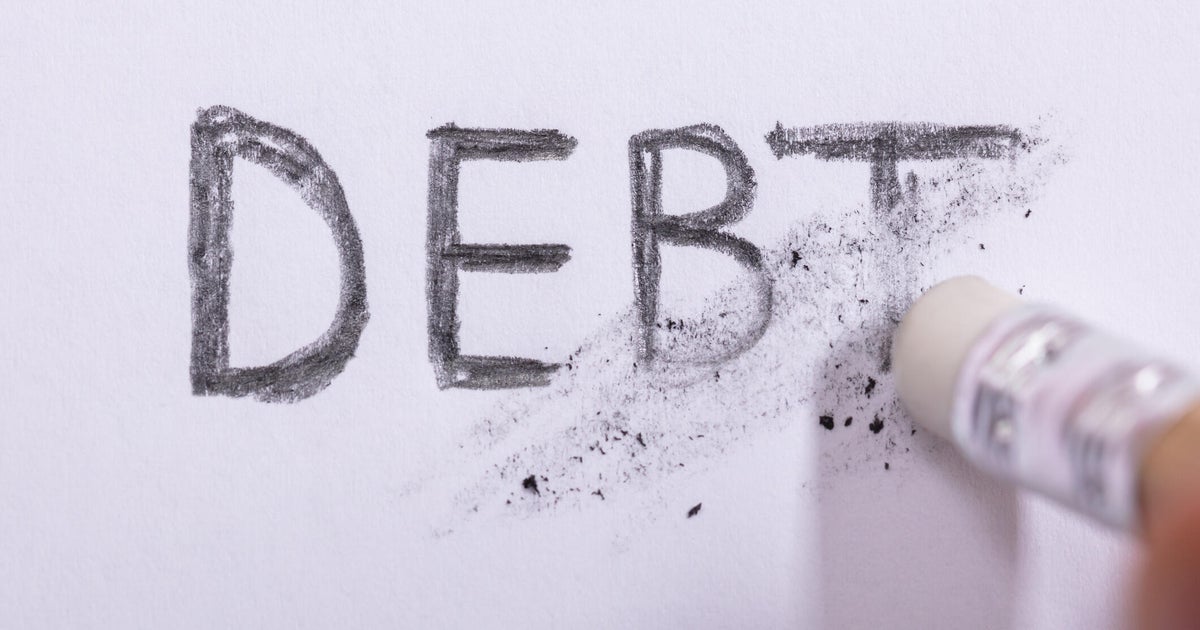Should you use home equity to pay off debt before the holidays? What experts say
Home prices have surged over the last few years, giving homeowners a valuable asset: equity. The average American homeowner now holds almost $300,000 in home equity — which they can access through home equity loans and lines of credit for major expenses or debt consolidation.
With holiday spending around the corner and credit card rates near 24%, many homeowners are eyeing their equity as a debt solution. Home equity loans and home equity lines of credit (HELOCs) are offering attractive rates in the mid-8% range. But financial experts warn this strategy isn't right for everyone. Here's what you should know about using home equity to consolidate high-interest debt now.
Find out how affordable home equity borrowing can be now.
Should you use home equity to pay off debt before the holidays? What experts say
"One of the biggest advantages to [homeownership] is access to more tools, including home equity loans and lines of credit to manage financial wellbeing," says Debbie Calixto, sales manager at loanDepot. "When done responsibly, consolidating debt before the holidays can create breathing room."
But in the long run, this only works if you've addressed the root cause. According to Andi Wrenn, a member of the board of directors for the Association for Financial Counseling, Planning Education (AFCPE), many homeowners fall back into debt within a year because they haven't changed their spending habits (only now, their home is on the line).
With that in mind, let's explore when tapping into your home equity makes sense for debt consolidation — and when you might want to consider other options.
Compare the top home equity borrowing rates available to you today.
When it would make sense to use your home equity to pay off debt now
It could be wise to pay off debt with your home equity if you've already improved your spending habits. By doing so, "[you] can lower your overall cost of borrowing," highlights Calixto.
Converting high-interest credit card debt to a lower-rate HELOC or home equity loan could mean significantly smaller monthly payments.
Assuming you can make loan payments on time and handle end-of-year expenses, doing this now can be particularly beneficial.
"Starting the new year without debt can be a huge financial and mental boon," notes Michael Micheletti, chief communications officer at Unlock Technologies, an Arizona-based financial company.
Success with home equity borrowing starts with understanding your finances. Wrenn recommends tracking every expense for at least a month and creating a detailed budget before considering this option. This ensures you can handle the new payment structure and avoid falling back into debt patterns.
When it wouldn't make sense to use home equity for debt consolidation
"I wouldn't recommend tapping into [your home equity] if you're planning on reaching back in your wallet for your credit card to pay for holiday gifts," warns Calixto.
Simply moving debt around without fixing poor spending habits can put your home at risk.
Another obstacle to consider is timing. Micheletti explains that accessing home equity can take several weeks or months. Many homeowners find themselves stuck in limbo, waiting for approval while bills keep piling. In this case, it may not be realistic to pay off debt this way before the holidays.
3 alternative ways to manage high-interest debt
Tapping into your home equity isn't the only way to manage high-interest debt if you decide it's not the best option.
Calixto and Micheletti suggest the following proven alternatives:
Debt snowball method
Start by listing your debts from smallest to largest, ignoring interest rates. Then, "make the minimum payment on all debts except the smallest," Calixto advises. If you have extra funds after paying the minimum, apply them to the smallest one until it's paid off. This approach builds momentum as you clear each debt.
Balance transfer cards
If you have strong credit, "[consider] a balance-transfer card with a zero, or very low, interest rate," suggests Micheletti. Be sure you can pay off the transferred balance during the promotional period (usually around six to 20 months). Otherwise, this may backfire as interest rates skyrocket after that.
Professional guidance
Tackling debt can be overwhelming, especially when you have lots of it. When in doubt, seek help from a financial advisor who can create a personalized debt payoff plan.
The bottom line
"When considering tapping into your equity, ensure you're comfortable with your loan terms and confident in your ability to repay," stresses Calixto. Your next steps include tracking your monthly spending and meeting with a financial advisor to review your debt consolidation options. If you're struggling with debt but have a solid repayment plan, compare offers from top home equity lenders.
Finally, Calixto reminds us that the home secures the HELOC or home equity loan. "[That's] why rates are typically more favorable than unsecured debt," she says. "You don't want to do anything to jeopardize the roof over your head." Make sure your decision moves you toward long-term financial wellness — not short-term relief.




